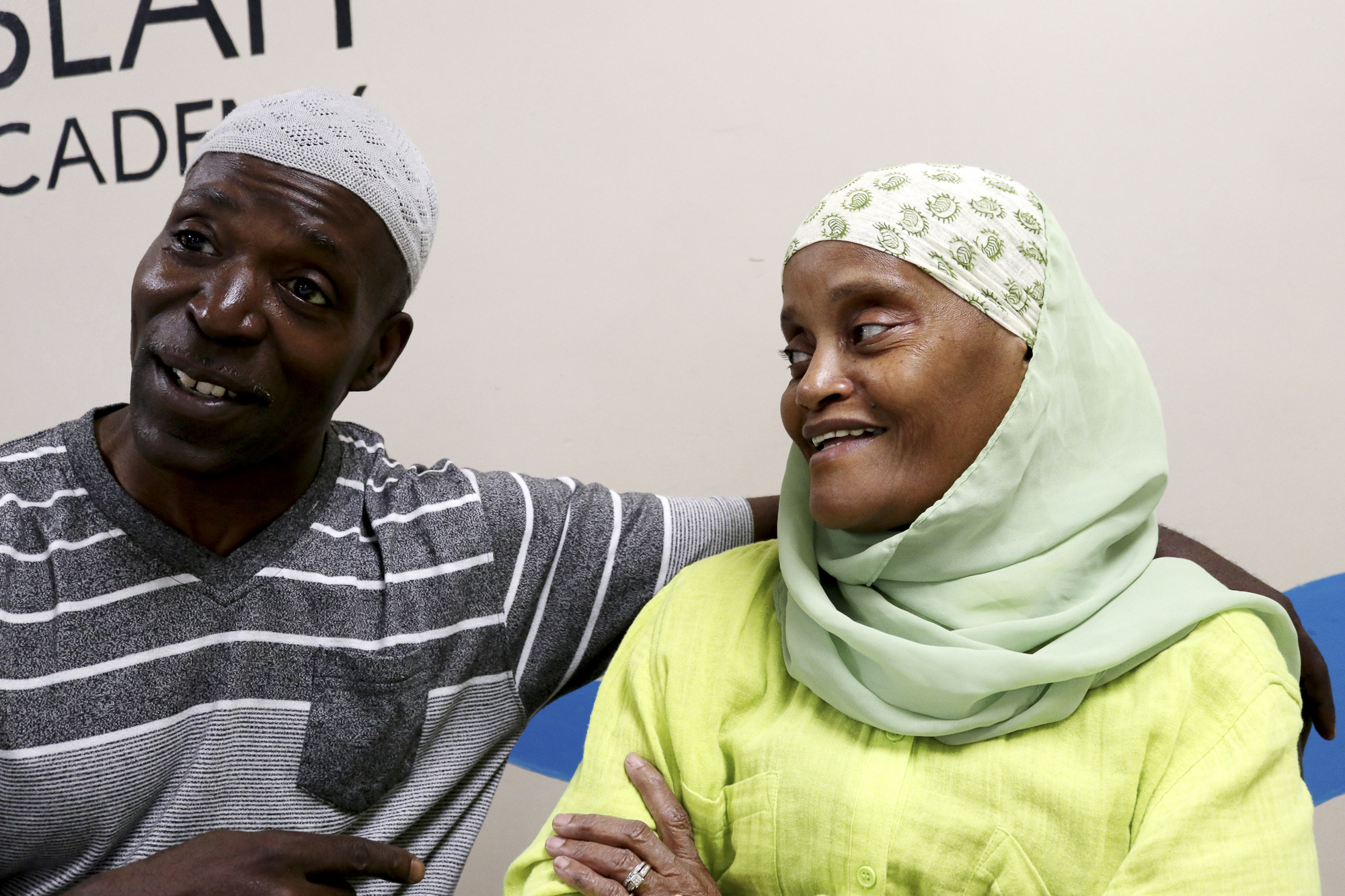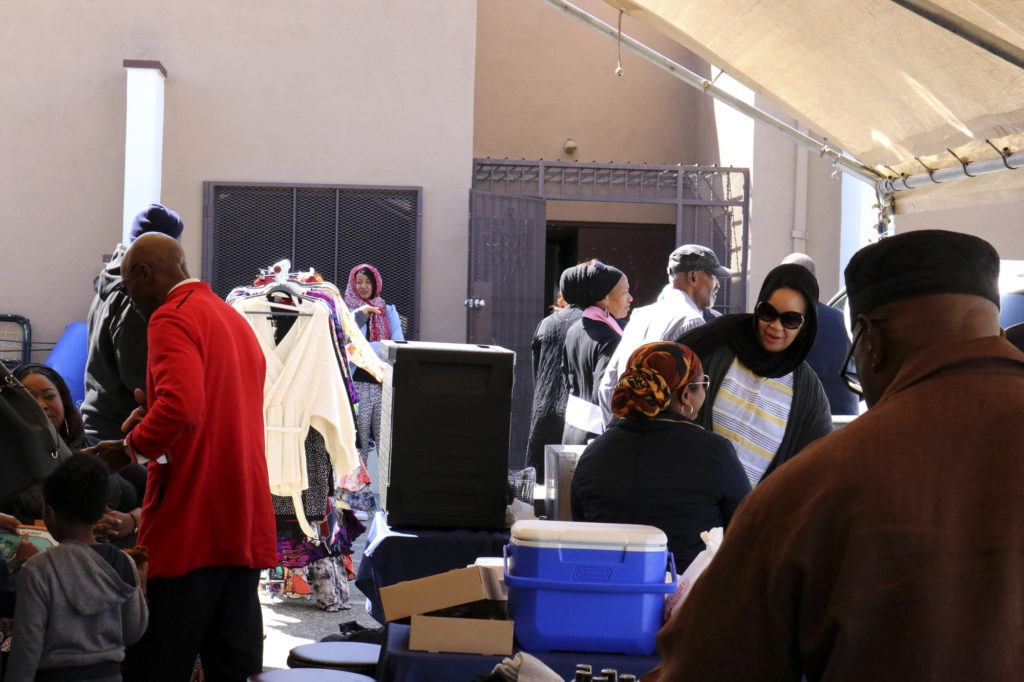“The streets told me I was a gangster, the streets told me I was a murderer, the streets told me I was a gang chief — Islam was telling me I was a human being.”
Sadiq Davis had a little more than a year left on parole in Chicago’s South Side when he found out his nephew had been shot and killed nearby on his birthday.
He knew it was due to gang violence, but the Chicago police did not have any suspects. Meanwhile, other gang members approached him, telling him they could get payback.
But Sadiq didn’t want to get sucked back into that lifestyle.
“It’s hard to walk away when people from gangs tell you they can get justice,” he says.
A few months prior to losing his nephew, he met his future wife, Aquillah. Since she had family in California, the two of them weighed the option of moving to Los Angeles.
“We had to get out,” she says. “It was almost like a life and death kind of move. Neither one of us thought that if we stayed there that we could make it.”
Two weeks after his parole ended in December 2016, the two left Chicago’s South Side for L.A. to begin a new chapter in their lives.
Upon arrival, Sadiq immediately looked for work. After a recommendation from a fellow Muslim brother, he visited Islah LA on Slauson Avenue.
Named after the Arabic word for reform, Islah LA is a Muslim community center in South L.A. that offers social services like weekly food pantries and youth programs, a school for kids in kindergarten through the eighth grade and weekend Islamic Studies classes.
The day Sadiq first visited the Islah LA campus, volunteers were delivering food to a crowd of people at its gates. At that moment, he was inspired to work with the nonprofit. The following month, Sadiq and Aquillah were hired as building managers at Islah LA, overseeing janitorial services and preparations for community events.
“I would say the [Islah LA] community is everything to us,” Sadiq says. He adds that being active in the nonprofit keeps him rooted in his spiritual practice.
After Friday prayer, members of the Islah LA community put on a small-scale bazaar with everything from clothes to Egyptian musk on sale. Photos by Omar Rashad. Sadiq Davis recalls his time spent in and out of prison. Photos by Omar Rashad.
A Safe Haven
Islah LA is located in Hyde Park, a neighborhood that, according to the Los Angeles Times’ Mapping L.A. database has had more than 600 violent crimes and property crimes in the last six months. It’s also among the top 20 L.A. neighborhoods with the highest number of violent crimes.
No more than a 10-minute walk down the street, L.A. rapper and community activist Nipsey Hussle was gunned down on March 31, 2019. The shooting occurred in front of his store, The Marathon Clothing, which sits at the intersection of Crenshaw Boulevard and Slauson Avenue.
Besides crime, the neighborhood also faces high rates of poverty, recidivism and homelessness. According to Islah LA founder Jihad Saafir, the nonprofit addresses these issues with community-based programs and initiatives.
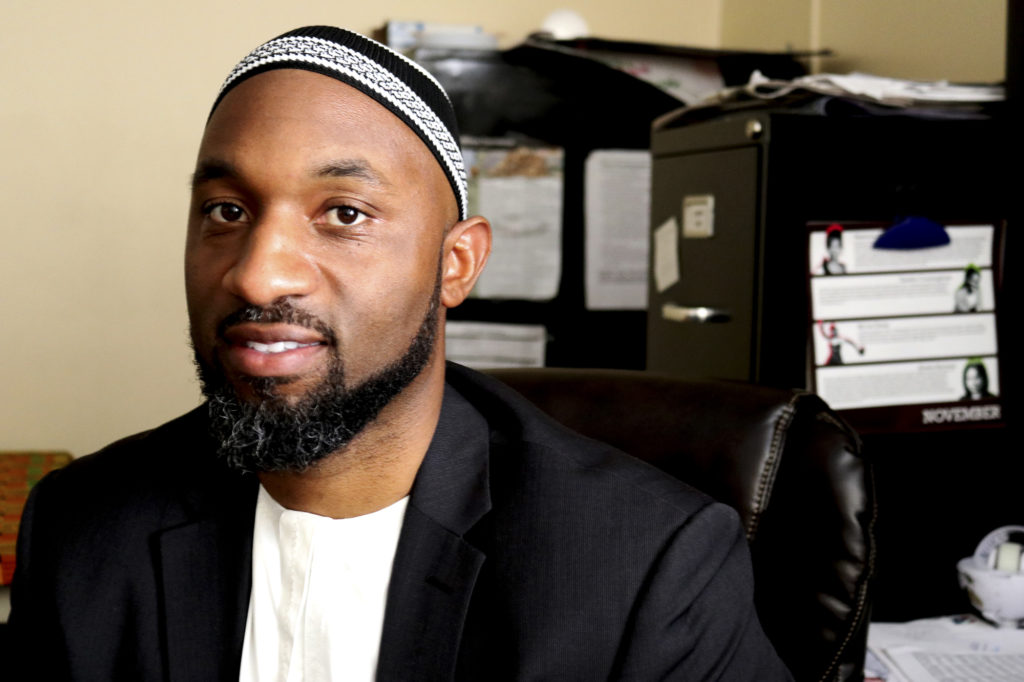
Every Saturday, Aquillah and Sadiq are among the volunteers who prepare care packages of meat, fruit, vegetables, milk, canned foods, paper towels and other necessities for more than 120 families in need.
Service is at the center of many of the programs Islah LA puts on for its South L.A. community.
“The tradition of the Muslim community has always been a service-based community,” Saafir says. “This is the place where people come when they need help.”
Sadiq adds that Islah LA offers South L.A. a safe haven because it is accepting of others, regardless of anyone’s identity.
“Even when people outside the African American nationality come here, we welcome them,” he says. “This community means a great deal to us because it embraces the diversity. Everybody is truly one here no matter what color.”
A Challenging Past
After Sadiq left prison in 2013, he had spent more of his life inside a prison cell than outside of one. Born and brought up in Chicago’s West Side, he got involved with gangs at an early age and was a gang chief for many years.
He says the lifestyle was dangerous and going to prison was a form of prestige and honor for gang members; going to jail in Chicago was like going through “revolving doors,” according to him.
But he says the cycle is a product of prison life. Instead of learning how to assimilate back into society, Sadiq says prison teaches people how to return to their cell because it makes them comfortable with following orders and not making their own decisions.
“When you send a person out to the street, how do you expect him to survive in the street when he’s still locked up in his mind?” he asks.
The lack of rehabilitation within the prison system is the reason why rates of recidivism are heightened, Sadiq says.
But when he last entered prison in 2008, Sadiq said he found something greater, something that gave him all the answers he needed.
Islam.
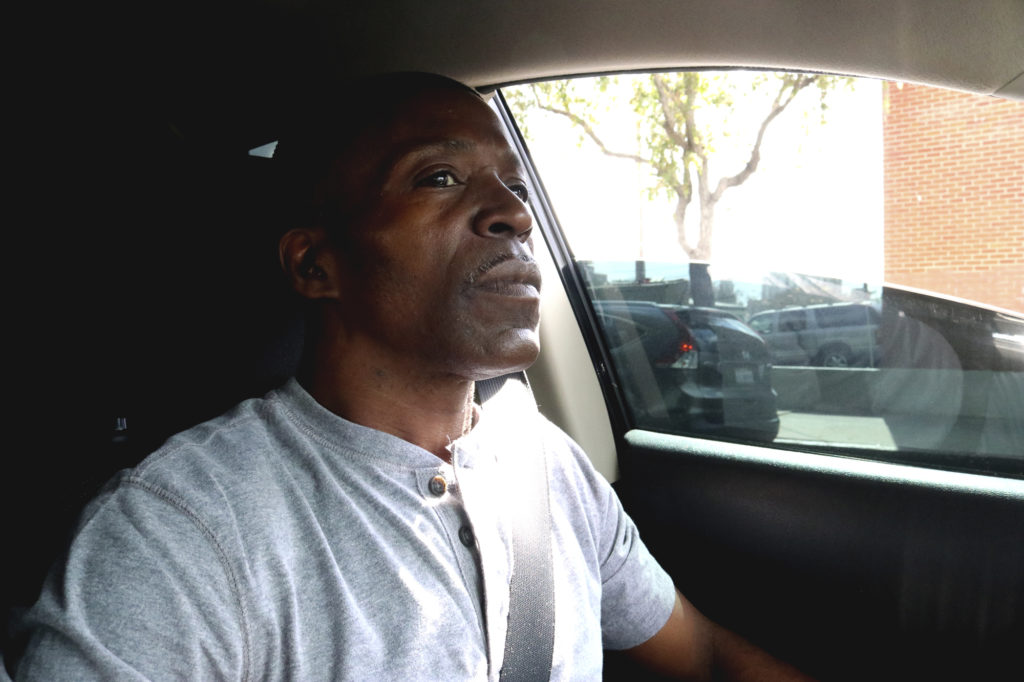
Although he was raised a Baptist and converted to Islam in the 1970s, he says he didn’t “have the right version” the first time. When he entered prison in 2008, he began practicing Islam by praying five times a day, reading the Quran and studying specific teachings.
As a result of his newfound devotion to Islam, he developed a new approach to life.
“The streets told me I was a gangster, the streets told me I was a murderer, the streets told me I was a gang chief,” Sadiq says. “Islam was telling me I was a human being.”
During those five years in prison, he became devoted to Islam and rose up as a community figure, leading salah, or prayer, for fellow Muslim inmates and focusing on the main community attribute he said was lacking on the streets — accountability.
He helped fellow inmates learn about Islam and turn their lives around; he became someone others could trust, including prison guards.
“Brothers who accepted Islam was humble, compassionate, they were good listeners, they were helpful,” Sadiq says. “I knew deep down within myself that this was who I was.”
When he left prison in 2013, he had three years on parole and attempted to stay away from gang life through his renewed devotion to Islam.
In 2015, he met his future wife at a grocery store. The two eventually decided to get married after spending time with each other and sharing world views, ideology and interest in music.
However, they agreed they needed a change of pace — Chicago was too dangerous for them.
A New Life
While the move to L.A. offered Sadiq a chance to escape gang life, it was also a positive change for Aquillah and her health.
In 2014, Aquillah was diagnosed with stage four breast cancer. After a few months of homeopathic treatment, she went in for chemotherapy, radiation and surgery.
“I would say the [health services] I got out here [in Los Angeles], it’s much better, more thorough,” she says. “Just more services available that was not available before.”
Aquillah will enter her fifth year of remission in May 2019 and credits finding Islam for surviving her condition.
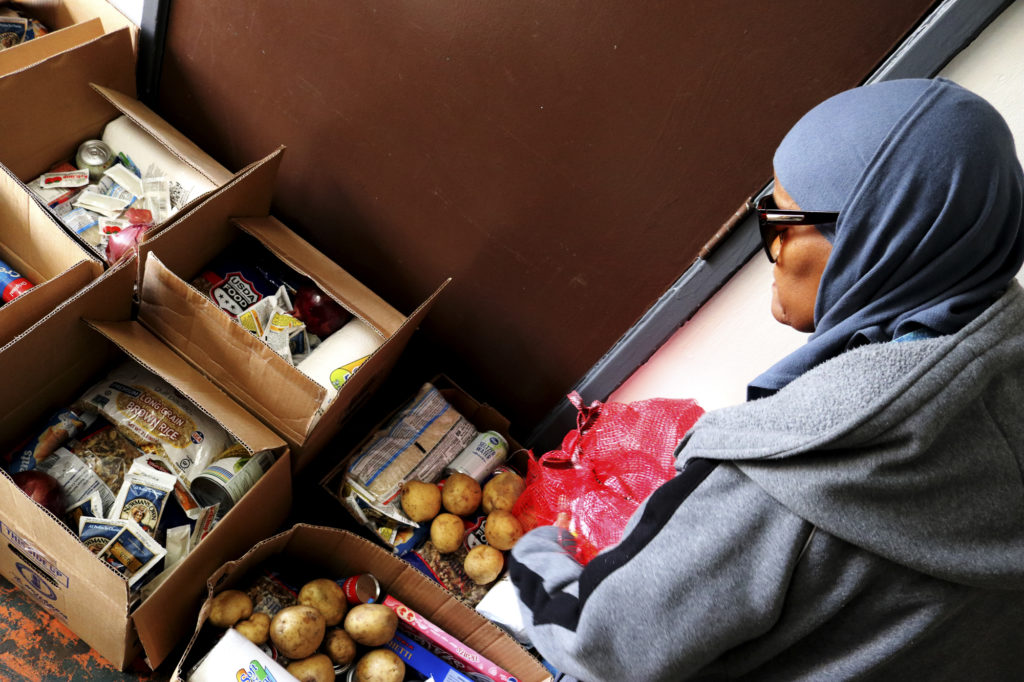
“I know Islam had saved me because I had pretty much just given up,” she says.
For Sadiq, becoming closer to Islam while in prison was his own defining moment.
“It was taking all the aggression and violence out of brothers and it was giving them humanity,” Sadiq says.
Saafir says at Islah LA these life-changing incidents are familiar.
“In here, you’ll be sitting next to a walking miracle,” Saafir says. “Everywhere you turn, you wouldn’t believe the stories you hear and how people made it through.”

